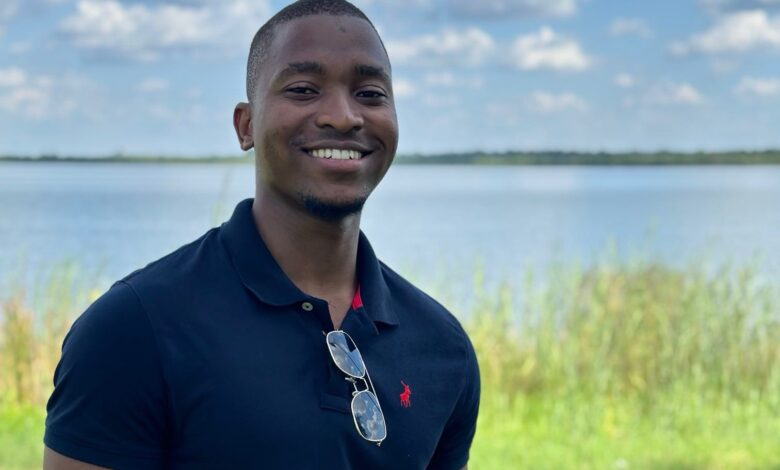Inspirational Interview With Young University of Johannesburg Lecturer Edwin Hlangwani

Inspirational Interview With Young University of Johannesburg Lecturer Edwin Hlangwani. At only 27 years old, Edwin Hlangwani, is a lecturer and researcher at the University of Johannesburg. His research work focuses on creating a nexus between emerging technologies and indigenous knowledge systems to develop, optimize and mobilize sustainable food systems in rural and semi-urban areas.
Hlangwane recently joined the Mail & Guardian 200 Young South Africans Class of 2024. We recently caught up with him where he spoke about what influenced his career, his inspirations as well as advising those who aspire to be in the same field.
1. How did you become interested in the intersection of emerging technologies and indigenous knowledge systems?
My mom often tells me interesting stories about her childhood. A majority of these stories are usually about how my grandmother cultivated various crops and prepared different traditional foods. In many ways, their way of life imitated the scientific method and showed the intersections I now seek to understand and highlight in my research.
2. What personal experiences have influenced your focus on sustainable food systems in rural and semi-urban areas?
When I did my work integrated learning at the Fruit, Vine and Wine Institute of The Agricultural Research (ARC Infruitec-Nietvoorbij), I started learning about agroprocessing. This opened a door to understanding the food value chain, from farm to fork. Seeing how critical the food system was socioeconomically made me ask myself how the development of these systems would impact economically disadvantaged communities.
3. What do you find most rewarding about your role as a lecturer and researcher?
Constantly learning something new. I might not like to admit it, but I easily get bored and have come to convince myself that I thrive in the face of challenges. I love learning, I love challenging myself, so both roles make that possible.
4. How would you describe your journey to becoming a researcher at the University of Johannesburg?
‘Slow’ and methodological. The more one does research, the more they refine their research interests. But it takes a lot of time (because research is lengthy), a true test of one’s patience for trial and error. It also requires a lot of planning. One of my previous supervisors often said, “Research is 90% planning”, words I now know to be true.
5. What personal qualities do you believe have contributed to your success in your field?
Self-belief. I don’t believe there is anything I cannot do. It has not always been like this, but I progressively and consistently built confidence in doing the hard things. However, I have been careful to understand that belief in oneself is not enough to achieve success without the ability to consistently do the hard things.
6. How do you stay motivated and passionate about your research work?
Having the main goal in mind has helped me stay motivated. Once in a while, I like to review my objectives for the year. Seeing what has been ticked off and what has not been ticked off tends to have some positive effects, so I’ve learned.
7. What challenges have you faced in your career, and how have you overcome them?
Given the many interesting lines of scientific enquiry, what has been challenging is streamlining my research interests. While I would like to explore my interests in various subject matters, I realize that it is not an entirely productive exercise. To overcome this, I have had to devote time and resources to activities that directly contribute to my main research objective. Side projects are just that, side projects.
8. How do you balance your professional responsibilities with your personal life?
I’m starting to think balance is a myth. In all seriousness, I use my weekends mostly for doing things I love doing, especially outside of my professional responsibilities. Still, this is challenging because I love my work—it hardly feels like work. Over the years, I have strictly kept to this 5-day work week and two days of rest.
9. What do you enjoy doing in your free time when you’re not working on research or lecturing?
Reading, watching football (big Chelsea fan here!) and chess games. I also used to enjoy playing video games, although I don’t get to play them as much these days.
10. What drives your commitment to improving sustainable food systems in rural and semi-urban areas?
The better use of available raw materials in these areas. More often than not, there’s underutilization and/or loss of natural food resources in these areas. My contribution is to ensure these communities can sustain themselves by providing sustainable food systems. This can be in the form of standardized processing procedures, health and safety measures, product development, and commercialization strategies.
11. How do you approach personal growth and self-improvement outside of your academic work?
I like to keep physically active through exercise (mostly weightlifting) and playing sports, football, and chess (yes, chess is a sport). This way I’ve managed to keep myself mentally healthy and positive regardless of the tides of life. Which is why I only spend time with like-minded, driven, positive, and creative people. I believe ‘your tribe’ is an essential tool in the personal growth and self-improvement toolkit. Further than that, I do a lot of reading for pleasure—perhaps only because, well…books are friends that never leave your house.
12. What advice would you give to young people who are interested in following a similar career path?
Get as many mentors as possible and learn as much as possible from them. If I had known this earlier, I would have made my life easier. I cannot overemphasize the value of mentors.




